People
Convenors
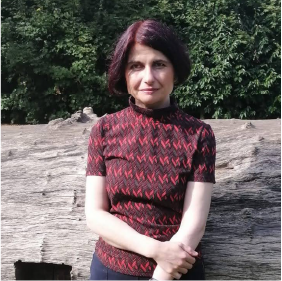
Maria Nita
Lecturer in Religious Studies, Anthropology of religion with a background in philology and modern Christian history
Maria is broadly interested in religion and the climate movement, having written about Green Christians in the UK, the British counterculture, the modern festival culture, green rituals and protest actions, as well as Romanian folklore and culture. Her research is interdisciplinary, drawing on theoretical and empirical approaches to language, story and place. Maria is presently conducting ethnographic research inside the Extinction Rebellion movement. Some of her recent research projects have looked at how arts-based methodologies used by green activists can translate into new eco-pedagogies in secondary and tertiary education.
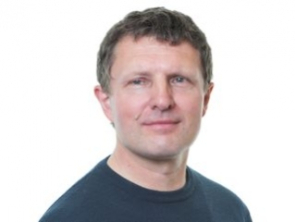
George Revill
Professor of Cultural Historical Geography, Landscape as a way of understanding past and contemporary experiences
Members
Luke Adams
Student Intern
Luke joined Open Ecologies from November 2023 until May 2024 as part of a Reciprocal Mentoring Internship project based in the Faculty of Arts and Social Sciences (FASS) and Wellbeing, Education and Language Studies (WELS). He just finished a History and Politics degree with the Open University. As part of the internship project, Luke mentors another academic staff member and supports various aspects of Open Ecologies’ work. Luke has previously worked with various environmental advocacy groups and has a keen interest in how an interdisciplinary approach can help tackle the climate crisis. Luke has previously written a blog for OU politics on protest rights.
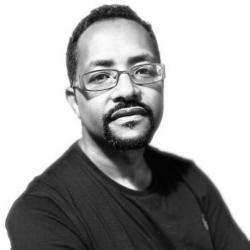
Yoseph Araya
Senior Lecturer in Ecology & Environmental Sciences
Yoseph is a senior lecturer in ecology and environmental sciences at The Open University, UK. Yoseph’s teaching and research interests, encompass the ecosystem level interactions amongst plant communities (how do diverse plants manage to coexist) to how humans utilise our natural environment (from biodiversity of food sources to aesthetic values of nature). He has worked in various ecosystems from temperate, to Mediterranean and tropical across Africa and Europe. He is keen in engaging the public (through formal modules as well as BBC) to participatory activities (i.e. citizen science) in ecological research.
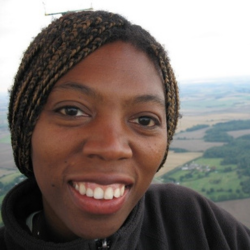
Carol Brown-Leonardi
Associate Lecturer and Honorary Associate researcher, Department of Geography (FASS) and Global Studies.
I am an Associate lecturer and Honorary Associate researcher in the Department of Geography (FASS) and Global Studies. As a social anthropologist I am passionate about research. I have conducted research in both Northern Canada on land settlement and negotiation, and in Northern Finland on reindeer racing and championships. In Canada, my research explored the place that subsistence livelihoods and reciprocal relationships have with territorial ecosystems in land claims negotiations and indigenous self-government agendas. I examined how they are employed in discursive strategies and in indigenous political processes. During this period, I contributed to the indigenous community by volunteering for the local band office in communication with the Federal government and mining companies. The common concerns were prospecting land and environmental concerns, which intensified my desire to advocate for sustainable development and the protection of the environment.
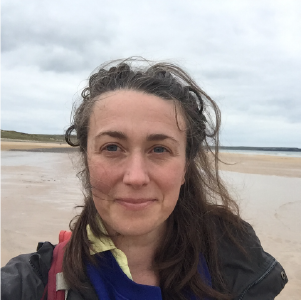
Carla Benzan
Lecturer in Art History, Sacred and scientific art and visual culture in northern Italy
Carla was one of the founding members of Open Ecologies, and has published on interspecies encounters in contemporary art and philosophy. Her new project examines the importance of image making and new media to the development of ornithology in the seventeenth century, including taxidermy, feather collage, and print. This has prompted her to reconsider the use of digital images in contemporary citizen science, which she has come to see in relation to early modern natural history. She is spearheading two related projects with colleagues in Art History: ‘Art, Visual Culture and the Global Climate Crisis’ and ‘Wild Life: Creative Encounters with Urban Nature.’
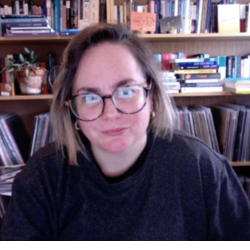
Amy Charlesworth
Lecturer in Art History, lens-based media in the 20th and 21st centuries with a particular focus on feminist art histories
Amy has published on the politics of representations of migration, movement and borders for both peer-reviewed academic journals and OU module material (A344). Her article for The Oxford Art Journal on Belgian filmmaker, Chantal Akerman’s 1999 documentary, From the Other Side was one of the first scholarly studies of Akerman’s work on the US-Mexico borderscape. Amy is currently developing work on early ecofeminist debates as they relate to histories of Land art, sometimes known as, environmental art in the 1960s and 1970s.
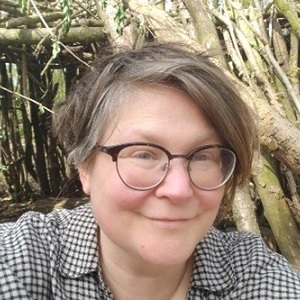
Lindsay Polly Crisp
Staff Tutor and Lecturer in Art History, Materiality, text, and fragmentation in contemporary art and culture
Lindsay is a former convenor of Open Ecologies. She is an academic in cultural studies with a background in community arts who writes about materiality, text, and fragmentation in contemporary art, assemblage theory, and new media theory. Her doctoral thesis explored these themes as they arise in Michael Landy’s art event Break Down (2001), in which the artist systematically catalogued and destroyed his possessions. In adapting elements of this project for publication, she is using an ecological lens to reinvestigate the themes of her research. She recently authored teaching material on transformations in visual culture in relation to the scientific imaging of natural phenomena for the undergraduate art history module Art and Visual Cultures in the Modern World (A236).
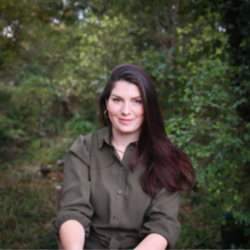
Lucy Dablin
Lecturer in Environment and Sustainability
My background is in sustainable rural development in the Amazon Rainforest. I am an applied researcher and I work with communities to develop innovative and sustainable agricultural interventions that can strengthen food security, improve livelihoods and contribute to the adaptation to, and mitigation of, climate change. My research focus is how markets for nature based solutions, such as carbon and biodiversity, can mobilise improved agricultural practices.
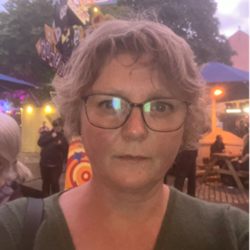
Emma Drye
Programme Leader Painting and Drawing, Open College of the Arts (OCA)
Emma Drye is an artist. Her practice focuses on themes of partial encounter; both in relationships with others and in knowledge production through practice. She works both with painting and with more social, improvised placement practices. She is currently undertaking a PhD at Chelsea School of Art (UAL) contextualising elements of her own practice against the archive of the historic Artist Placement Group. She was a recipient of Paul Hamlyn funding to work within the museum sector as a placement artist and this experience has informed her ongoing methodology. She spoke about partial encounter in relation to teaching at On Not Knowing - How Artists Teach at Glasgow School of Art in 2023. She is Head of Department for two discipline specific visual arts undergraduate pathways at the Open College of the Arts at the Open University. Whilst there is enormous flexibility and cross over within the degrees; Drawing is a degree that thrives in the transdisciplinary. Painting is a degree that celebrates the intimacy and fluidity of paint as a medium. It is a privilege to be able to consider two disciplines in such detail.
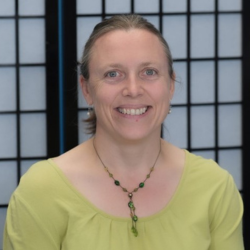
Alison Fox
Senior Lecturer in Teaching and Learning and Associate Head of School (Research and Knowledge Exchange), School of Education, Childhood, Youth and Sports
Alison co-leads a team of researchers building the OSC programme of arts-based research Connecting Communities and Heritages against the Climate Crisis, developing partnerships across the UK and Africa. This connects with Alison’s roles as an ethics advisor in European funded international arts-based projects examining cultural heritage and identity and, internally, in a range of initiatives promoting decolonising and democratising approaches to research, including in research engagement and dissemination. Alison is currently chair of our University human research ethics committee (HREC). Alison’s interests in ethics broadened from an interest in environmental ethics as an environmental scientist and environmental science teacher in secondary and further education. Coming full circle Alison is now involved in education for sustainability initiatives within postgraduate and open courses at the Open University and has placed the relationship between humans and the environment onto the agenda of the HREC.
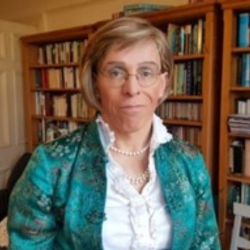
Sophie Grace Chappell
Professor of Philosophy
Sophie has been Professor of Philosophy at The Open University since 2006. Before that she was Reader in Philosophy at the University of Dundee (1998-2006), and before that she held posts at Wolfson College, Oxford (1991-1994), Merton College, Oxford (1992-1994), UEA (1994-1996), and Manchester (1996-1998). Her main interests in philosophy are ethics, the philosophy of literature, the philosophy of sex and gender, ancient and mediaeval philosophy, epistemology, and philosophy of religion.
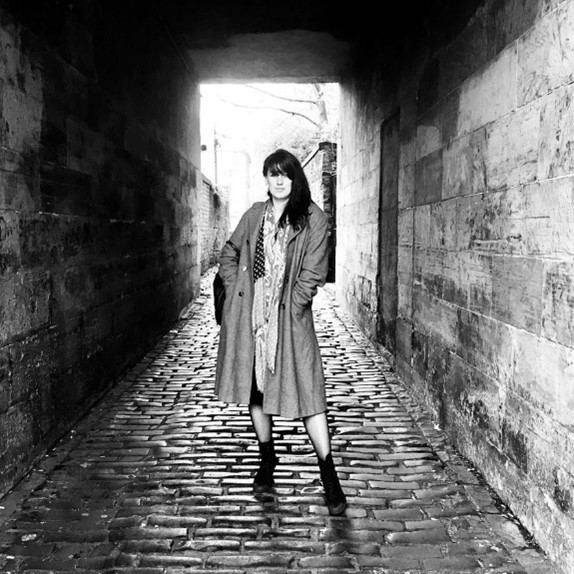
Becca Harrison
Senior Lecturer in Film & Media, histories and geographies of power, identity, and screen media
My academic work uses interdisciplinary approaches to explore power in relation to screen media (usually film), its technologies, labour conditions/practices, and exhibition contexts. Currently, I'm leading the Environmental Impact of Filmmaking Project, which is assessing the environmental sustainability of various prop and costumes produced for the Star Wars franchise. In this and other projects, I trace material histories of extraction, making, and circulating and consider how these activities affect both people and environments. In and beyond my scholarly research, I'm also interested in working collectively to improve conditions for everyone marginalised by the structures and violences of capitalism.
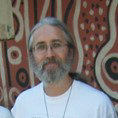
Graham Harvey
Emeritus Professor of Religious Studies, Indigenous rituals and performance cultures, animisms
Graham is interested in the cosmologies, ontologies and rituals of Indigenous peoples. He is particularly engaged by etiquettes of inter-species respectful relationality (or the “new animism”). Having enjoyed the hospitality of diverse Indigenous communities (particularly Anishinaabeg, Māori, Mi’kmaq, Walpiri, Yoruba) he has written about knowledges and practices concerned with the larger-than-human world. He has also researched among contemporary Pagans and is currently interested in the changing and growing self-identification as animists among some Pagans. His is founding editor of Routledge’s Vitality of Indigenous Religions monograph series, and of Equinox’s Religion and the Senses series. His interests in animisms and the senses combine in a project focused on food ways.
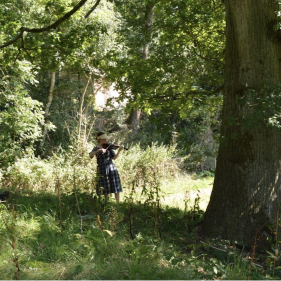
Jessica Hughes
Senior Lecturer in Classical Studies, Material Religion, Place and Landscape, Memory and Tradition
Jessica works on ancient Greco-Roman sanctuaries, votive offerings, and other forms of material religion, especially in the area around Vesuvius (Campania, Southern Italy). Recently she has been drawing on ideas from geomythology and historical ecology to look at the changing relationships between humans and other inhabitants of the Pompeii Valley, from trees, vines and birds to the volcano and the river. She is also currently exploring ancient ideas about the earth’s interior and subsoil, as part of a project looking at the underground storage of temple collections across the Greco-Roman world.
Jeff Johnson
Professor of Complexity Science & Design, Policy-oriented application of hypernetwork theory
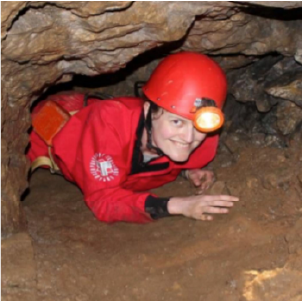
Carry van Lieshout
Lecturer in Geography, Historical geographies of water and metal mining in 18th and 19th-century Britain
Carry is interested in questions of power, access and ownership, which she has studied in the context of water management and subterranean territory. She has published on the commodification of water and access to piped water supply in eighteenth-century London, as well as on drainage in urban and industrial contexts. Her work on metal mining in Derbyshire studied water-related conflicts to analyse how property ownership over mines and water was negotiated, and how notions of vertical territories clashed between surface and subsurface. She was involved in the interdisciplinary Environmental History project ‘The Power and the Water’ led by Peter Coates in Bristol that focussed on environmental connectivities that have emerged in Britain since industrialisation (2013-15).
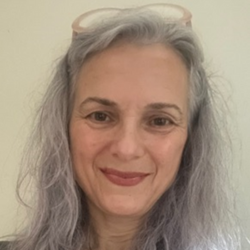
Clara Mancini
Lecturer in Geography, Historical geographies of water and metal mining in 18th and 19th-century Britain
Clara is Professor of Animal-Computer Interaction (ACI) in the School of Computing and Communications at The Open University, UK, and founding head of the University’s ACI Laboratory. Her work investigates the interaction between animals and technology; and the nexus between technology, animal wellbeing and justice, and human-animal relations. Her research spans the theory, methodology, practice and ethics of designing animal-centred interactive systems for and with animals, to help inform more equitable and inclusive multispecies ecosystems.
Her work has reframed human-centred concepts to develop more inclusive multispecies approaches as well as translated ACI concepts to develop animal-centred research and design approaches beyond the ACI field. Her collaborations with industry and NGOs have resulted in practical innovations, including interfaces to support the work of bio-detection dogs, dog-friendly controls to support the work of mobility assistance dogs, screen-based games to monitor and foster the cognitive health of companion dogs, and interactive environments to enhance the welfare of rescued tigers.
Clara has published extensively in the leading peer-reviewed computing, interaction design, animal computer interaction, and animal behaviour and welfare journals and conference proceedings. She has lectured and refereed on ACI research worldwide. Her work has been brought to broad audiences through public lectures and exhibitions - including for HM Queen Elizabeth II - and has been featured in national and international media, including print, radio and television.
She is a founder of the ACI International Conference and for over a decade has been promoting animal-centred research and design across disciplines by organising numerous scientific events and by serving on various scientific committees. In recognition of her contributions to ACI, in 2023, she received the inaugural Outstanding Career Impact Award created by the ACI Steering Committee on occasion of the ACI Conference’s tenth edition.
Kadmiel Maseyk
Senior Lecturer in Environmental Sciences
Plant and ecosystem responses to environmental variability and global change processes.
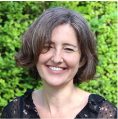
Alice Moncaster
Professor of Sustainable Construction at the School of Architecture and Environment, UWE (Bristol) and Visiting Professor at the School of Engineering and Innovation (The Open University).
Alice has a first degree in engineering and ten years of industry experience as a civil and structural design engineer, followed by a PhD in the social sciences. Her research focuses on making the built environment more sustainable and fit for future climates. She believes that working across different perspectives, disciplines and cultures can create whole new ways of understanding, and is eternally stimulating.
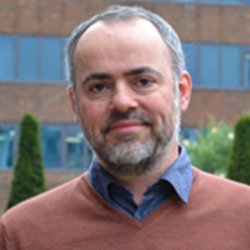
Andy Morris
Senior Lecturer, Geography
I originally came to The Open University to undertake my PhD in 1998 having completed an undergraduate degree in Cultural Geography. Following the completion of my PhD I gained a two year Post-Doctoral research fellowship within the Department of Geography from 2002-2004. In 2008 I began working within The Open University in the South regional office in Oxford, first as a Social Sciences Faculty Co-ordinator and then as a Staff Tutor and Lecturer in Geography. Since 2016 I have worked as a Staff Tutor and Senior Lecturer based at Walton Hall.
I also worked as an Associate Lecturer from 2000-2021, teaching both undergraduate and post-graduate modules.
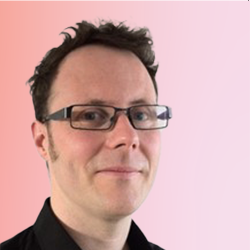
Christian Nold
Lecturer in Design
Christian is interested in exploring Citizen Science from a Science and Technology Studies perspective. He is designing new environmental monitoring tools and approaches that can function socially and politically.
Niall Oddy
Associate Lecturer, Arts & Humanities
Niall is a cultural historian of early modern Europe, with a particular interest in travel and geography. His monograph Writing Europe in Renaissance France (Edinburgh University Press, 2024) examines Europe as an ‘imagined geography’. He is currently working on an environmental humanities approach to tourism in early modern spas.
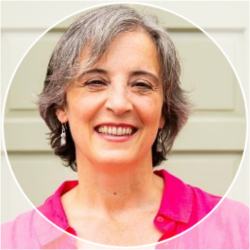
Catherine Pestano
Associate Lecturer
Catherine is an Honorary Associate with interests spanning wellbeing, social enterpise and community arts. These come together in her practice as an eco artist and activist using song and music in nature to promote health, stimulate change and help restore the spirits of those exhausted by contextual oppressions & stressors.
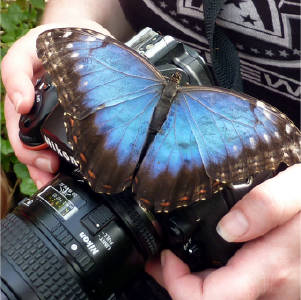
Theodora Philcox
Staff Tutor in Design Thinking, European art and design history in the 19th and 20th centuries
Theo’s background lies in the links between the arts and the mental sciences in the nineteenth century. Early work also included an exploration of the symbolism of spiders in art and literature and fin de siècle art and culture in general. More recently she has been researching the impact of the Spanish Flu on modernist design.
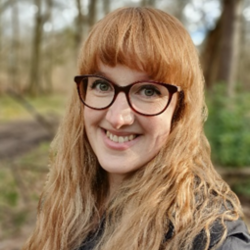
Christine Plastow
Lecturer in Classical Studies
Christine is a Lecturer in Classical Studies. Her research has two strands: classical Greek oratory as a source for the study of rhetoric and social history; and practice-as-research work on modern retellings of ancient myths to speak to various modern social and global issues. She has a long-standing collaboration with Theatre of the Gentle Furies, a London-based performance collective. Their current project aims to create a performed story cycle based on ancient myths of the relationship between people and the environment, in order to provide an arena for discussion of our relationship with the natural world today in a time of climate crisis.
Dan Robinson
Lecturer in Classical Studies
As a writer, artist, designer and educator I work with images, spaces and tools for dialogue, learning, imagination and change. I often collaborate via artist residencies, commissions and participatory projects (in-situ and virtually) for gardens, nature reserves, civic buildings, archives, organisations and online. I’m working on my first novel, set between Leeds, Colorado and 17th century Japan and featuring a travelling land-use inspector.
At Open College of the Arts I am Program Leader and curriculum developer: BA (Hons) Photography; BA (Hons) Moving Image; Investigating Place with Psychogeography (short course); Photography as Language (short course); and Arts and Environment (open resource). I also chair OCA Sustainability and Climate Justice workgroup. Previously, I led BA (Hons) Art & Design Interdisciplinary (OU validated), ERASMUS partnership and Crossing Borders research cluster at Leeds Arts University.
I am co-founder of Mud Office (UK/France) and Starterculture. Discover more via my website.
Education: MA & PhD (site-specific art as dialogue) School of Fine Art, History of Art and Cultural Studies, University of Leeds, (AHRC scholarship). MA Creative and Life Writing, Goldsmiths, University of London. SFHEA.
Amanda Sciampacone
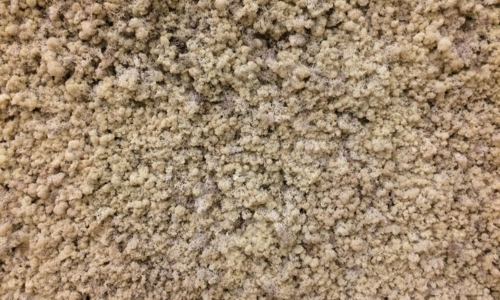
Staff Tutor in Art History, Nineteenth-century British art and visual culture, history of medicine and science, medical and environmental humanities.
Amanda is an art historian who explores the intersections between British art, visual culture, medicine, and the environment in the long nineteenth century. Her research interests include visual representations of epidemic disease, climatology, and air pollution, how art and science make the invisible visible, and how scientific information is conveyed visually. She has published articles on Victorian visual culture and medical climatology, and the connections between epidemic disease and empire in nineteenth-century illustrated prints. In 2018, she curated the exhibition Art, Air, and Illness at the Lanchester Research Gallery at Coventry University, which explored how art and science shape perceptions of the impact of the environment on health.
Philip Seargeant
Senior Lecturer in English Language/Applied Linguistics, Language and social media, with a particular focus on the politics of online interaction
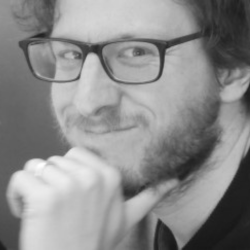
Samuel Shaw
Lecturer in Art History, The visual cultures of natural history in 19th and 20th century Britain
Sam was one of the founding members of Open Ecologies and served as Co-Convenor from 2020-2022. Sam’s background is in turn-of-the-century art and exhibition culture in Britain. Recent projects have, however, taken a more ecocritical approach and a broader understanding of art and visual culture, incorporating such media as natural history illustrations and taxidermy. He has written specifically on the cultural history of zebras, but is more widely interested in the reception and representation of African animals in Britain (the subject of a forthcoming project). He is also convening a block on art and the Anthropocene for the OU module A236, and leading the project ‘Art, Visual Culture and the Global Climate Crisis’ in association with Glasgow Museums.
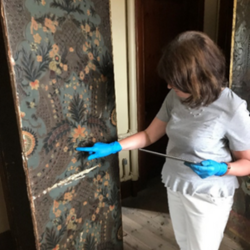
Clare Taylor
Professor of Art History and Material Cultures, Research Lead, Department of Art History
Clare’s background is in material culture and the decoration of the interior. Her current research project, Gilt leather Rooms in Britain and Ireland, c.1600-c.1800, was funded by the Paul Mellon Centre for the Studies of British Art. It investigates the hangings, upholstery and other objects composed of calf and goat skins and decorated in animal pigments and metallic oxides to imitate the effects of gold. It therefore raises issues around attitudes to animals and in particular their skin in the early modern period and the ways in which makers and users interacted with this material. Clare has written on gilt leather for the Art History module A336, Art and Its Critical Histories, and her wider interests in the interaction between landscape and objects is reflected in her upcoming unit on London’s frost fairs as part of the module A237, Art and Life to 1800.
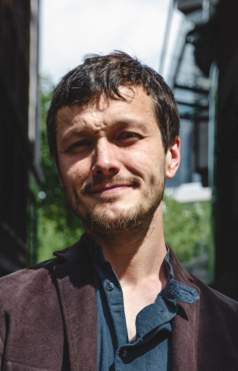
Dan Taylor
Lecturer in Social and Political Thought, Political Theory and the History of Political Thought
Dan works on British politics and political thought. His current projects relevant to this group include Place, Community and Connection in the Fens, a year-long Open Societal Challenge project exploring social connection and infrastructure in one largely rural part of England that is uniquely threatened by the impacts of climate change. He has also published several journal articles/book chapters on aspects of climate anxiety and autonomy, and the philosophical and historical origins of mentalities of the Anthropocene.
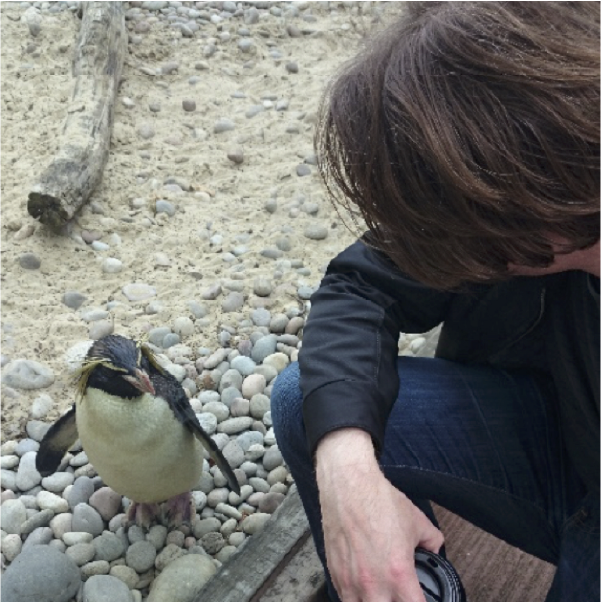
Paul-François Tremlett
Senior Lecturer in Religious Studies, Emotion and affect to the formation of transnational activist publics on digital media
He specialises in classical anthropological and sociological approaches to religion and has also written on structuralism, postmodernism and urbanism. His current research looks at the role of emotion and affect in civil society organisations campaigning for human, environmental and indigenous rights in the Philippines. He previously worked on the Reassembling Democracy research project funded by the Norwegian Research Council (Reassembling Democracy: Ritual as Cultural Resource (REDO) (completed) - The Faculty of Theology (uio.no)) where he examined the material and performative dimensions of anti-capitalist protests in Hong Kong and London.
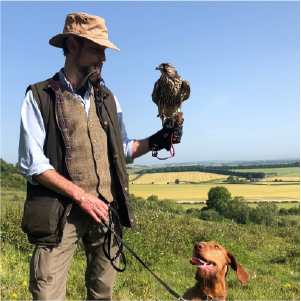
Robert Wallis
Staff Tutor and Senior Lecturer in Art History, Archaeology and anthropology of art and religion, prehistoric and early medieval visual and material culture.
Robert has published on prehistoric art, shamanism, animism and their interface with modern and contemporary art, the uses of heritage by today’s Pagans, and the archaeology of falconry and human-raptor sociality. His most recent publications include The Art and Archaeology of Human Engagements with Birds of Prey: From Prehistory to the Present (Bloomsbury 2023) and a special issue of the open access journal Religions on ‘Art, Shamanism and Animism’ (2021/2022). He is currently working on a monograph exploring a post-humanist art and archaeology of falconry.
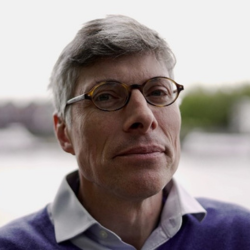
James Warren
Senior Lecturer in Transport & Sustainability
My interests centre on transport emissions and subsequent decisions about mobility when framed by climate change. I also work with the artefacts of mobility.
Philip Wheeler
Senior Lecturer in Ecology, Conservation and Environmental Management
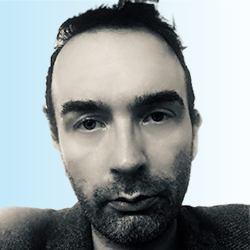
Patrick Wright
Associate Lecturer and Honorary Associate, Creative Writing and English Literature
Patrick is a poet and critic, with an interest in twentieth-century and contemporary British and American poetry, ekphrasis, prose poetry, hybrid forms of writing, and how English Literature and Creative Writing intertwine. Recently he has been looking into the potential therapeutic benefits of creative writing, especially in response to images and outdoor settings. This has led to becoming co-director of an ecotherapy project called Reenchantment, which provides workshops and short courses that help participants to rediscover a sense of wonder in nature. His is currently writing a book on developments in ekphrastic practice over the last two decades.
